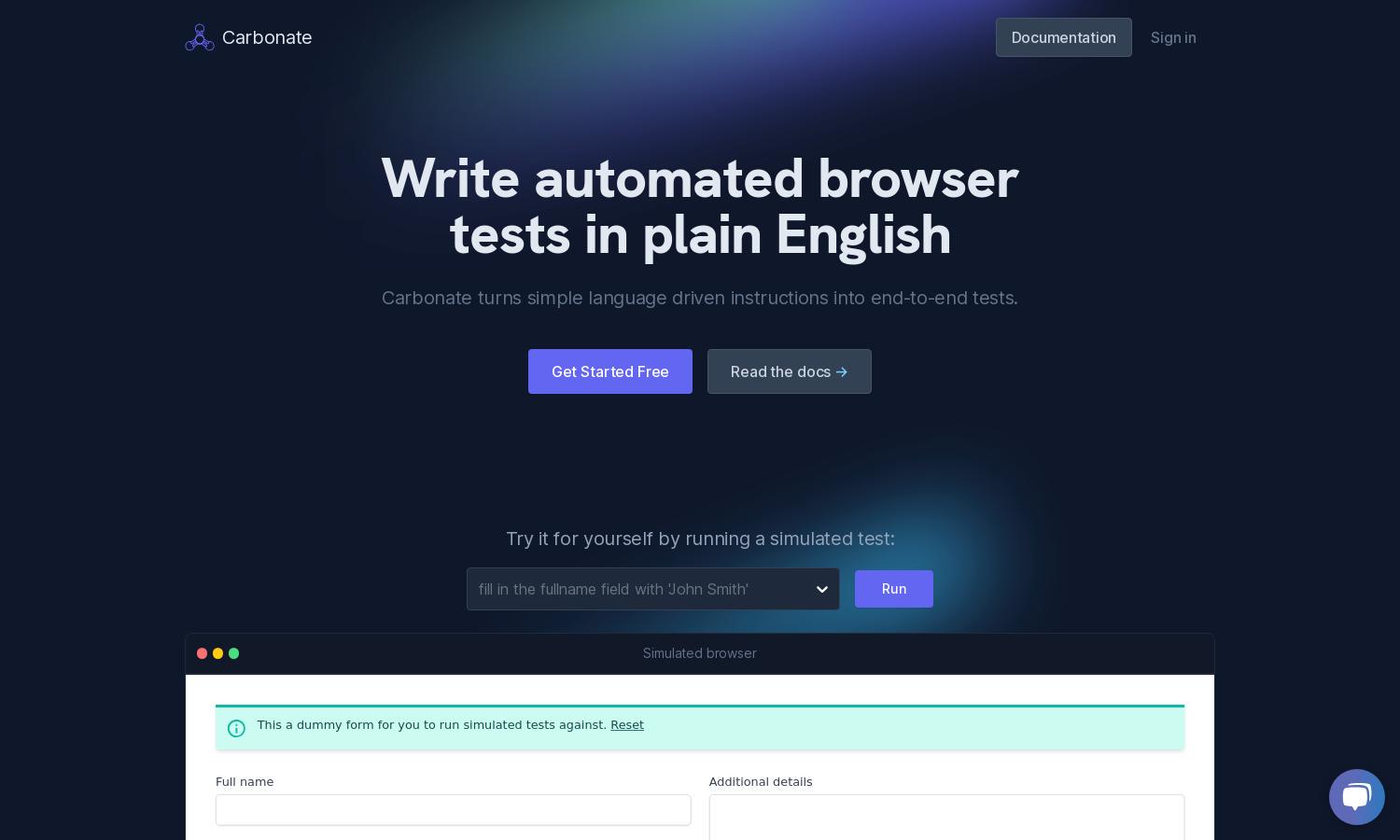Carbonate

About Carbonate
Carbonate is a platform designed for developers seeking efficient automated end-to-end testing solutions. It utilizes AI to convert plain language instructions directly into test scripts, minimizing the need for brittle tests. By integrating seamlessly with your existing testing framework, Carbonate enhances reliability and performance, solving the challenge of fragile tests.
Carbonate offers flexible pricing plans, starting with a free option to get you started. Each tier provides additional features, enhanced performance, and priority support, ensuring you have everything you need for efficient automated testing. Upgrading unlocks advanced capabilities that streamline your testing processes and improve overall productivity.
Carbonate features a user-friendly interface that facilitates seamless navigation. Its clean layout enables users to quickly create and manage automated tests while highlighting essential tools and resources. This design contributes to an efficient browsing experience, making testing streamlined and effective for developers integrating Carbonate into their workflows.
How Carbonate works
To get started with Carbonate, users integrate the SDK into their existing test suite and write tests using simple English instructions. During onboarding, the platform generates test scripts based on initial inputs. Carbonate intelligently analyzes changes in the HTML to adapt scripts accordingly, ensuring smooth operation with user-friendly interactions and optimal automation.
Key Features for Carbonate
Plain Language Test Writing
Carbonate's unique feature allows users to write automated test scripts using plain language instructions. This innovative approach simplifies the testing process, making it accessible to all developers. By converting these instructions into robust scripts, Carbonate enhances efficiency and ensures tests remain stable as user interfaces evolve.
Robust Script Generation
Carbonate intelligently generates test scripts based on initial user input and automatically updates them when UI changes occur. This robust script generation minimizes manual effort and boosts reliability, allowing users to focus on development rather than maintaining fragile test cases, making Carbonate a valuable tool for test automation.
Cached Test Performance
Another key feature of Carbonate is its caching capability, where performance analysis is conducted only during the initial run. Subsequent runs leverage the cached version of the test script, ensuring optimal speed without sacrificing reliability. This feature allows developers to enjoy performance equivalent to hand-written tests.
You may also like:








